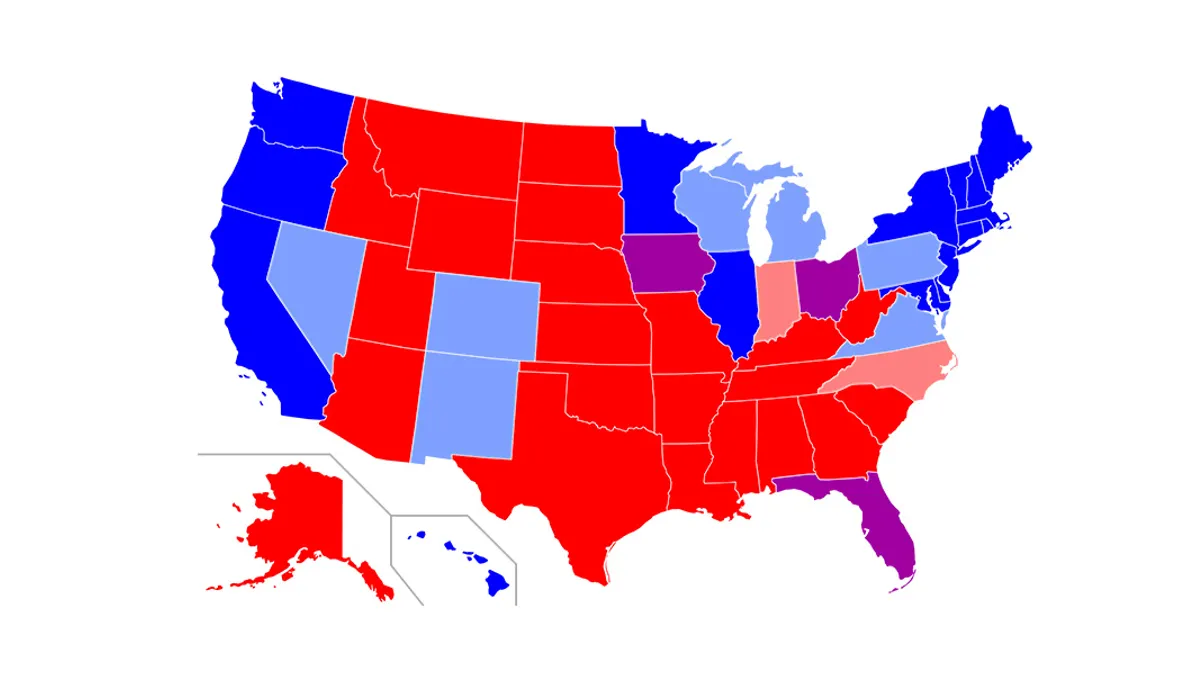Dive Brief:
- In its latest quarterly report, which analyzed 2,275 minutes and agendas from a range of local governmental bodies in 16 states, Waste Alert identified a notable policy divide. According to the report, localities in "blue" states, such as California and Oregon, had more discussion of climate change and establishing waste diversion as core policies. Alternatively, governments in "red" states, such as Idaho, Wyoming and Oklahoma, were more focused on service issues than broader discussions of sustainability.
- Based on Waste Alert's sample analysis, solid waste or recycling came up at 26% of local government meetings during the second quarter of 2017. The sample includes a total of 1,165 meetings held by city councils, county commissions, borough assemblies, local committees and other bodies.
- Financial discussions, a core factor in most decisions about waste and recycling policy, were the most commonly identified category. Discussions about specific companies, contracts or franchise agreements were also common. Waste Alert attributes this in part to the prevalence of franchise systems in the west.
Dive Insight:
As noted by Waste Alert, the U.S. has more than 19,000 municipal governments and 3,100 counties, so the data pulled for this report is only a representative sample — with a bend toward the west because of its clients' interests. Although that sample includes governments with populations ranging from 1,000 to 1 million people, and clearly covers a range of political priorities. While the concept of red or blue states is often more complicated when looking at local voting data, it is true that high-level waste policy is often more aggressive in left-leaning states.
Among the few states that ban organic waste from landfills — or at least mandate that certain businesses divert it — California, Vermont and Massachusetts are some of the standouts. This also goes for cities with "zero waste" or high diversion rate goals, such as San Francisco, Seattle and New York. Other cities such as Austin, TX, are somewhat more anomalous for their political leanings within the state. Though the existence of state policy, or local sustainability interest, is only one factor, and these situations are often complicated by regional factors.
Depending on the location of a municipal government, access to disposal capacity and the scope of their responsibilities may vary. Many small cities or towns have tight budgets, and may be less than concerned with hitting big diversion targets than making sure their carts get picked up on time. Larger cities, while still focused on quality service, may have to spend more to export their material longer distances and want to find ways to avert that. Or, as seen recently in Denver, there may be local desire to divert more from the waste stream, but cheap and accessible disposal capacity complicates the equation.












